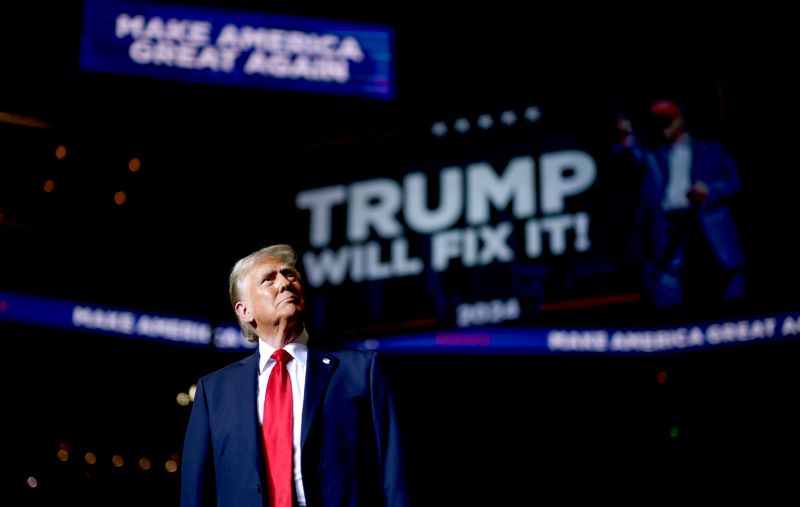
Donald Trump may impose 40% tariff on Chinese imports next year
Washington DC: The United States may impose tariffs of nearly 40% on Chinese imports early next year, Reuters reported, citing the outcome of a poll of economists it conducted.
Such measures could reduce China's economic growth by up to 1 percentage point, impacting the world's second-largest economy.
The survey, conducted after Donald Trump's election victory on November 5, suggests the President-elect is unlikely to start with blanket 60% tariffs on Chinese goods, despite his campaign pledge for steep levies under his "America First" trade agenda.
Trump's proposals have raised concerns in Beijing and increased risks to China's already vulnerable economy, which is grappling with a prolonged property slump, debt issues, and sluggish domestic demand.
The poll, conducted between November 13 and 20, included over 50 economists.
A strong majority predicted tariffs would be introduced by early next year, with a median estimate of 38% and projections ranging from 15% to 60%.
However, most respondents do not expect the higher 60% tariff level, citing potential inflationary effects in the U.S.
Raymond Yeung, chief economist at ANZ, anticipates a tariff increase of 32-37% on average, aligning with measures from Trump's first term.
Meanwhile, Chinese policymakers are under pressure to boost domestic demand to offset potential export declines—a key growth driver this year.
The poll estimates that new U.S. tariffs could shave 0.5-1.0 percentage points off China’s 2025 GDP growth.
Nonetheless, the median growth forecasts for this year and 2025 remain unchanged at 4.8% and 4.5%, respectively, with a further slowdown to 4.2% expected in 2026.
Economists are awaiting clarity on the Trump administration's trade policies, which could prompt downward revisions in their outlook.
Mo Ji, chief China economist at DBS, noted that while exports remain a key growth pillar amid global demand, new tariffs could significantly impact GDP.
Weak consumer spending, driven by declining property values and rising unemployment, coupled with a modest recovery in infrastructure investment, further complicates China's economic outlook.
Of the 23 economists who responded to the poll, 19 believe recent fiscal and monetary stimulus measures by the Chinese government have had limited effect, with additional support necessary to sustain growth, according to the Reuters reports.
Policymakers aim to meet this year’s 5% growth target but may introduce more stimulus measures to counter trade tensions with the U.S.
Analysts believe Beijing has time to assess the impact of U.S. policies before implementing further responses, the report said.
Jian Chang, chief China economist at Barclays, suggested additional policy adjustments could come later.
The poll also revised down consumer price inflation forecasts to 1.1% for next year and 1.4% for 2026, reflecting weaker demand, the report said.
The People’s Bank of China is expected to lower its key seven-day reverse repo rate by 20 basis points to 1.30% early next year, with another 10-basis-point cut anticipated later in the year.
Support Our Journalism
We cannot do without you.. your contribution supports unbiased journalism
IBNS is not driven by any ism- not wokeism, not racism, not skewed secularism, not hyper right-wing or left liberal ideals, nor by any hardline religious beliefs or hyper nationalism. We want to serve you good old objective news, as they are. We do not judge or preach. We let people decide for themselves. We only try to present factual and well-sourced news.







